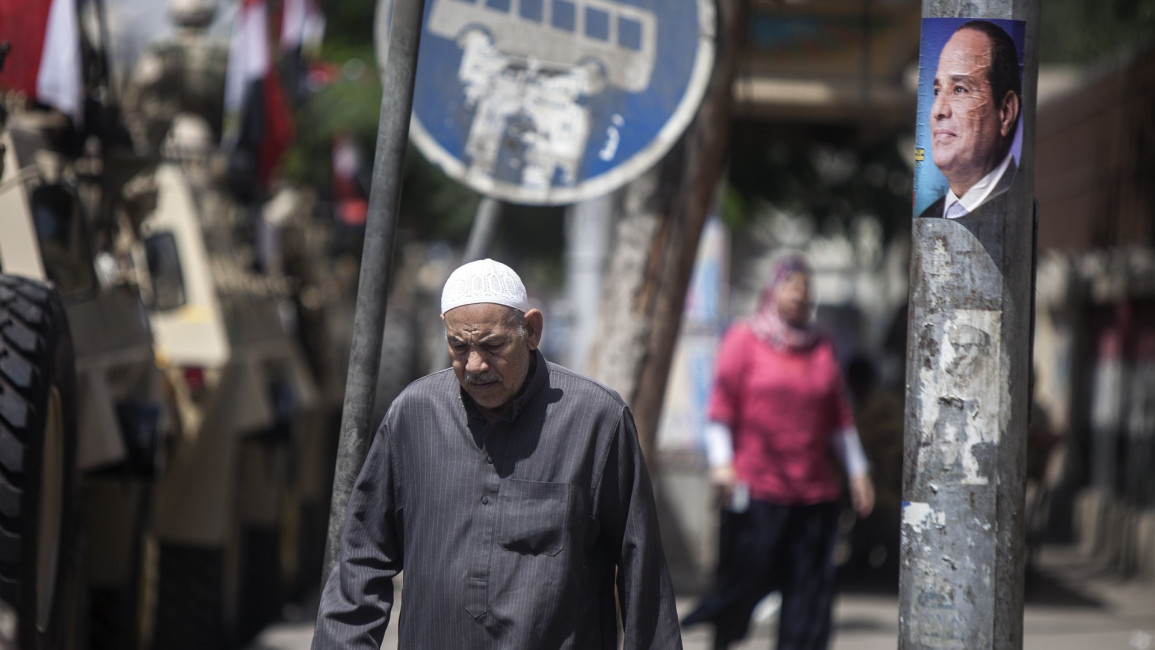
Egypt buries a decade of hope and tyranny
In that time, so much has happened to the country and its people. Egypt had its brief moment of democracy, which was ruthlessly overthrown. And, as if to consign that period firmly to the past, both Egypt's first democratically elected president Mohamed Morsi and the tyrant he replaced are now dead.
The reality is, that Egypt finds itself locked into endless tyranny - the same tyranny that Mubarak represented, yet under Sisi the methods and scope are different.
What was once brutal authoritarianism under Mubarak has been transformed into even more brutal totalitarianism under Sisi. Never in modern Egyptian history has a regime done more to control the public and private life of citizens, with every sphere - cultural, political and civil - being ruthlessly policed and reshaped towards complete subservience to the state.
It's difficult to write a commemoration of January 25 in the face of an Egypt where so many have been and are being murdered, tortured, imprisoned, disappeared, exiled and executed. What it really deserves, is a lamentation.
If the mass and constant repression of dissent is the cruel terroristic methodology of Sisi's counterrevolution, it's in projects like Egypt's "new capital city" that you find the rotten fruits of such brutal labour.
Amid collapsing hospitals ravaged by Covid-19, the civilisational threat of Egypt's inability to mitigate the effects of Ethiopia's Grand Renaissance Dam, increasingly impoverished citizens and the mass decay of urban spaces, a cityscape designed for and by the super-rich minority is what Sisi offers up as the future.
 |
Never in modern Egyptian history has a regime done more to control the public and private life of citizens |  |
What better description than "pharaonic" could be attributed to the opulent grandiosity of this endeavour?
The capital city project is the antithesis of the spirit of January 25, which was, at its very heart, a demand for basic egalitarianism. A demand for the breaking up of Egypt's tyrannical kleptocracy, with power, wealth and opportunity being taken back by Egyptians.
This project is a monument to the bloodstained triumph of the tyrannical kleptocracy. It's the ultimate reward to Egypt's ruling classes for withstanding the tidal wave of January 25 which briefly knocked them off their axis.
While the children of Egypt's poor are forced into hazardous often entirely unregulated work, the children of the rich are being rewarded with a theme park four times the size of Disneyland.
Twitter Post
|
In the doomed megalopolis of Cairo, poor people have had their "temporary homes" destroyed by the regime, making thousands homeless and adding to the existing massive official and unofficial "homeless" population. Meanwhile, the regime builds thousands of luxury villas in Egypt's "new capital" for its ultra-rich devotees.
It will be a massive enclave foreign to most Egyptians - a world of shopping malls, multiplexes, swimming pools and five star hotels. This is the contribution to civilisation the Sisi regime will leave behind - monuments of extreme injustice, stripped of dynastic romanticism and infused with the most crude materialism.
Read more: The eternal promise of the Arab Spring
Cairo will be all but abandoned, with its sprawling population providing cheap labour for the new city, while its already depleted water supply will be siphoned off.
This is the ultimate triumph of the parasites over their host.
It would be easy to make predictions about an inevitable backlash to all this, but the totalitarian fortress that Sisi has built isolates different struggles and consigns dissenters to terrifying fates.
Instead, the opportunity for change might lie in sources external to Egypt.
Though it doesn't seem that long ago that Egyptians, and many around the world were looking at the defiant gathered masses in Tahrir as a beacon of hope in a world weighed down by endless war and economic depression, in political terms it has been like a lifetime.
Though Barack Obama was no friend of democrats in Egypt or in other theatres of struggle in the Arab spring, Donald Trump didn't even know or care they existed. Under Trump's rule, Sisi, his "favourite dictator", could expect not even the lip service Obama paid to his human rights abuses. Europe, which managed avoid the righteous scrutiny Trump faced, exploited Trump's pro-Sisi effervescence and literally made a killing by selling shiploads of weapons to the dictator, as well as forging racist anti-immigration deals with him.
The world, for the most part, couldn't wait to forget January 25, and either helped or turned a blind eye to the Sisi regime as it drowned the revolution in a sea of blood. Trump was simply the American archetype of this global spirit of counterrevolution.
 |
A cityscape designed for and by the super-rich minority is what Sisi offers up as the future |  |
But even Trump has fallen. The administration of Joe Biden and vice president Kamala Harris are allegedly putting democracy front and centre of their foreign policy.
With barbs from Biden aimed at Sisi and his brutal exploits, and with an increased awareness in the Democratic Party of the need to hold Sisi to account as a recipient of billions of dollars of US aid, Sisi might find himself navigating diplomatically rocky terrain.
On the contrary, it could push Sisi deeper into the scope of his more naturally illiberal ally Russia, or China which has invested in the new capital city.
But it seems unlikely that either Beijing or Moscow could offer Egypt the same as what the US gives them, while Sisi's counterrevolutionary overindulgences have left the country geopolitically weak.
If the US begins to hold Sisi to account, Europe might be forced to follow to suit and Sisi's solid body of allies could suddenly crumble. The tyrant might be forced into reforms he doesn't want to make, and Egypt's bruised and beaten dissenters could find themselves newly galvanised.
This, for now, remains conjecture. Counterrevolution always contains the death of hope, and history shows us that it is extremely difficult to resurrect such hope. Sisi has, like never before, made basic survival the main aim of Egyptians - January 25 is a distant memory within a daily reality of the most brutal struggles.
Sam Hamad is a writer and History Phd student at the University of Glasgow focusing on totalitarian ideologies.
Join the conversation @The_NewArab
Have questions or comments? Email us at: editorial-english@alaraby.co.uk.
Opinions expressed in this article remain those of the author and do not necessarily represent those of The New Arab, its editorial board or staff.



